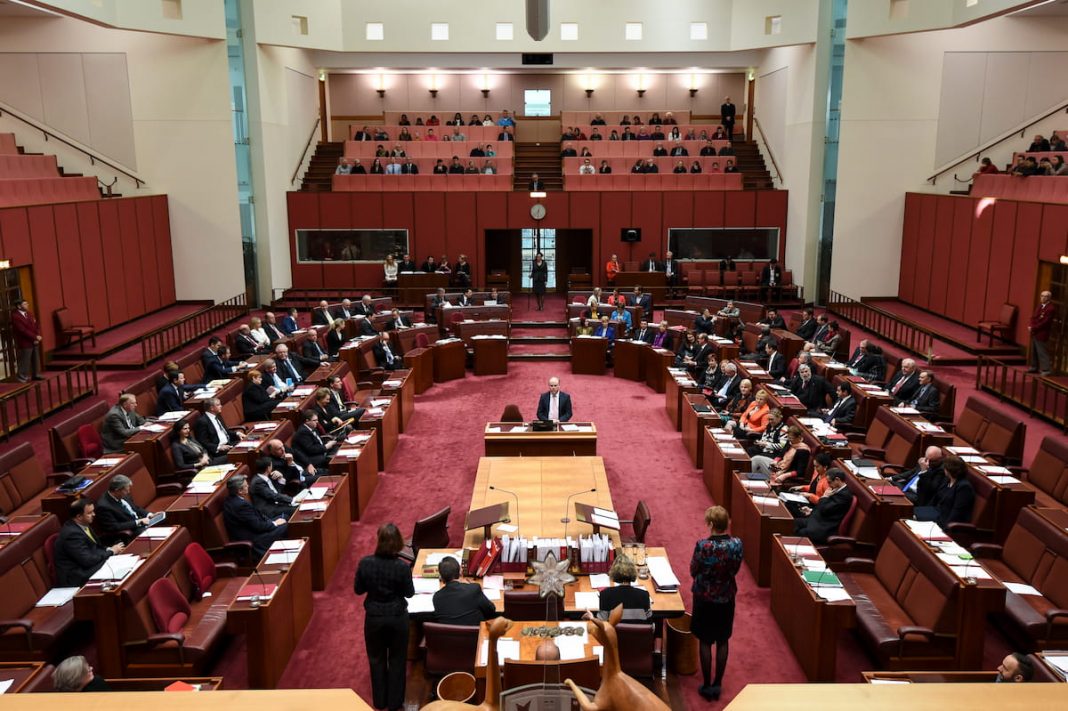A boost in the number of federal politicians could be on the cards, with a committee suggesting extra representation for the ACT and Northern Territory.
A joint standing committee examining the 2022 federal election has called for the number of senators to increase from two to four for both territories.
The final report into the federal election also called for a fresh look into whether the House of Representatives should be expanded to include more MPs, due to Australia being under-represented compared to similar democracies.
The committee’s chair Kate Thwaites said increasing the representation of the territories in the Senate was an overdue reform.
“It’s clear both (territories) are very different from what they were when the representation for the original states was put into our constitution at federation,” she told parliament on Monday
“They are still very different from when they were granted territory representation in 1973.”
While the territories currently only have two senators who serve three-year terms, each of the states gets 12 senators who serve six-year terms.
Other electoral reforms suggested by the committee include allowing for voters to enrol on voting day for federal elections or referendums.
Currently, electoral rolls close one week after election writs are issued.
The committee also called for an end to the election advertising blackout period, should proposed truth in advertising laws pass parliament.
Election ads are banned from TV and radio from the Thursday before elections, but the rules do not extend to print media or online.
The threshold for political donation disclosure has also been recommended to be lowered from $15,000 to $1000 for political parties and candidates.
However, the report recommended registered charities be exempt from the donation disclosure threshold.
Ms Thwaites said changes to electoral laws were needed to further enshrine democracy.
“It is tempting for all of us to retreat to our bunkers about how it might affect us, and once again, put change in the too-hard basket,” she said.
“But all of us in parliament need our community to have trust in us, in our elections and our democratic systems to allow us to do the work that we are sent to do.”
Further recommendations included allowing the Australian Electoral Commission to expand accessibility at the voting booth and to ensure more people with disabilities or residents overseas are able to vote over the phone.
ACT independent senator David Pocock said while he welcomed the calls for doubling senators, he said a ratio for territory representation would have been a better step.
“Let’s say there should be a lower and upper limit … and then if in the future the states get more senators, the territories will get more if they fall below that,” he told reporters.
Greens senator Larissa Waters said the proposed electoral reform would further entrench a two-party system.
“The Greens welcome the proposal for more Senate seats for the territories, but it is very concerning to see no further progress made on donations, transparency or tackling misinformation in today’s report,” she said.
“If Labor is genuine about electoral reform to deal with misinformation, with big spenders like Clive Palmer, and with dark money, they’d be consulting and working with the crossbench instead of talking about ‘bipartisan approaches’.”
National secretary of the CFMEU Zach Smith said the ACT was vastly under-represented in federal parliament.
“The ACT’s population is fast approaching Tasmania which has six times the Senate representation,” Mr Smith said.
“Anything less than four senators would be totally unfair for voters in the ACT who have been under-represented for too long.”



